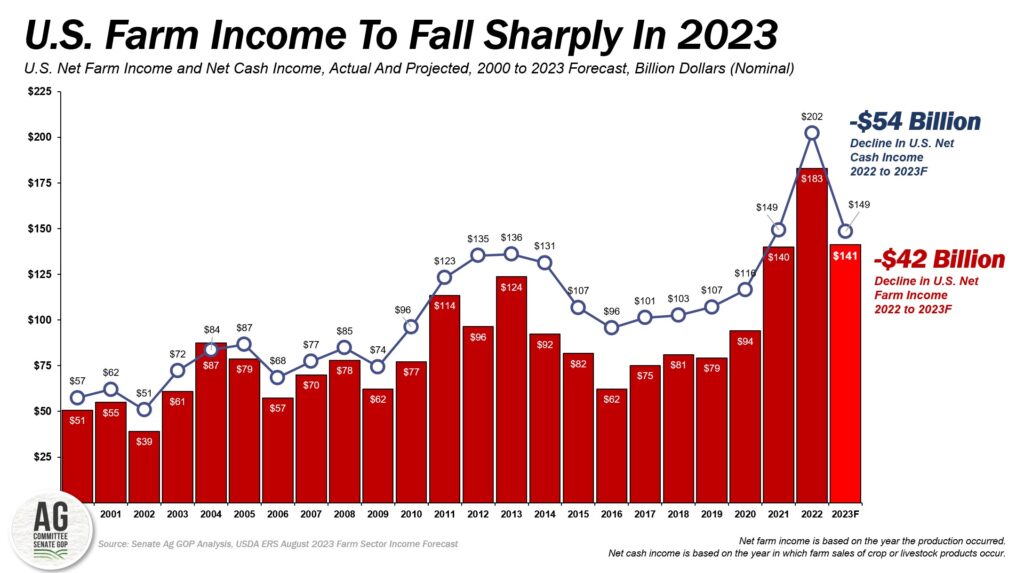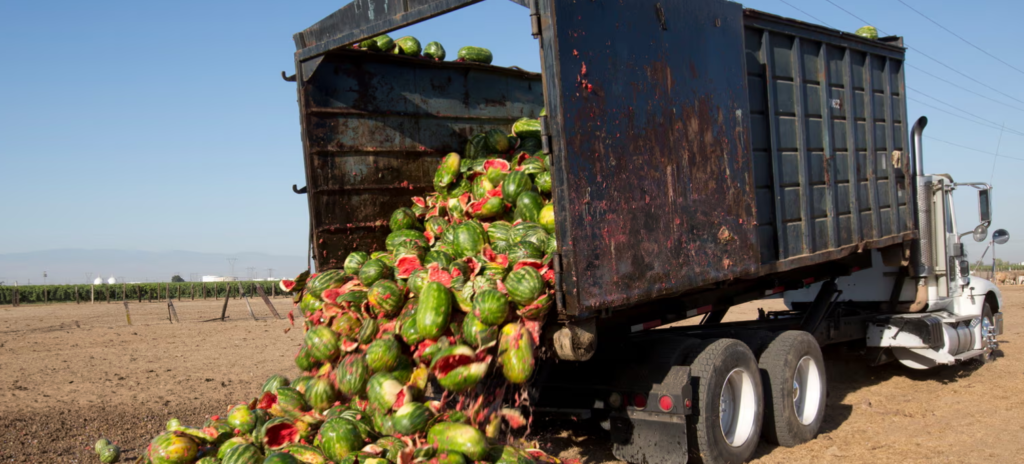Food waste is a social problem, a humanitarian issue, and an environmental concern. So why is it happening, and on such a massive scale? Is it because people are ungrateful, short-sighted, or uninformed? Instead of casting blame or assuming the worst, let’s consider conditions on the farm, at the food processor, and from ground transportation and distribution all the way to the dinner table. There are reasons why so much food is wasted and some of it – but not all of it – has to do with economics.
Farms
According to the World Wildlife Federation, approximately 16% of U.S. food waste occurs on farms. But why would farmers discard their own crops and pass up profits? Consider supply and demand. Buyers know that consumers don’t want blemished fruits and vegetables. Therefore, produce that’s not picture-perfect isn’t as marketable. There are also times when prices fall dramatically or harvesting and storage are too expensive. Meanwhile, the profitability of U.S. farming is plummeting.
Food Processors
ReFED, a non-profit research organization, claims that food processing byproducts such as pulp, peels, and seeds are a leading source of food waste. Ironically, these are also the most nutritious part of fruits of vegetables and a rich source of vitamins, minerals, and antioxidants. Food processors can convert these byproducts into other forms, but traditional food drying technologies aren’t cost-effective. Why invest in equipment and spend money on energy if there isn’t a market for upcycled byproducts?
Transportation and Distribution
Estimates vary, but much of the world’s food waste occurs after harvesting and processing. Products are often transported over long distances, and refrigerated trucks are usually the best way to carry perishable items. Yet failing to keep freight at the correct temperatures can result in rejected loads. Supermarkets may also buy more than they can sell before food items expire. Planning and monitoring technologies are available, but these investments can carry considerable costs – and food is often inexpensive.
Consumers
“The wealthier you are, the more food you waste,” Medical Life Sciences News reports. When consumers begin to spend about $10 per person per day, food waste increases rapidly. Yet food waste slows with higher levels of affluence. If economics alone can’t explain food waste, could a change in attitudes change behavior? There are ways to reuse food and technologies that show great promise. There’s also a better understanding of the cost and consequences of food waste, the subject of our next article in this series.

